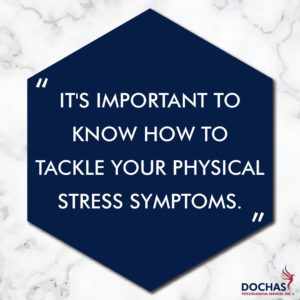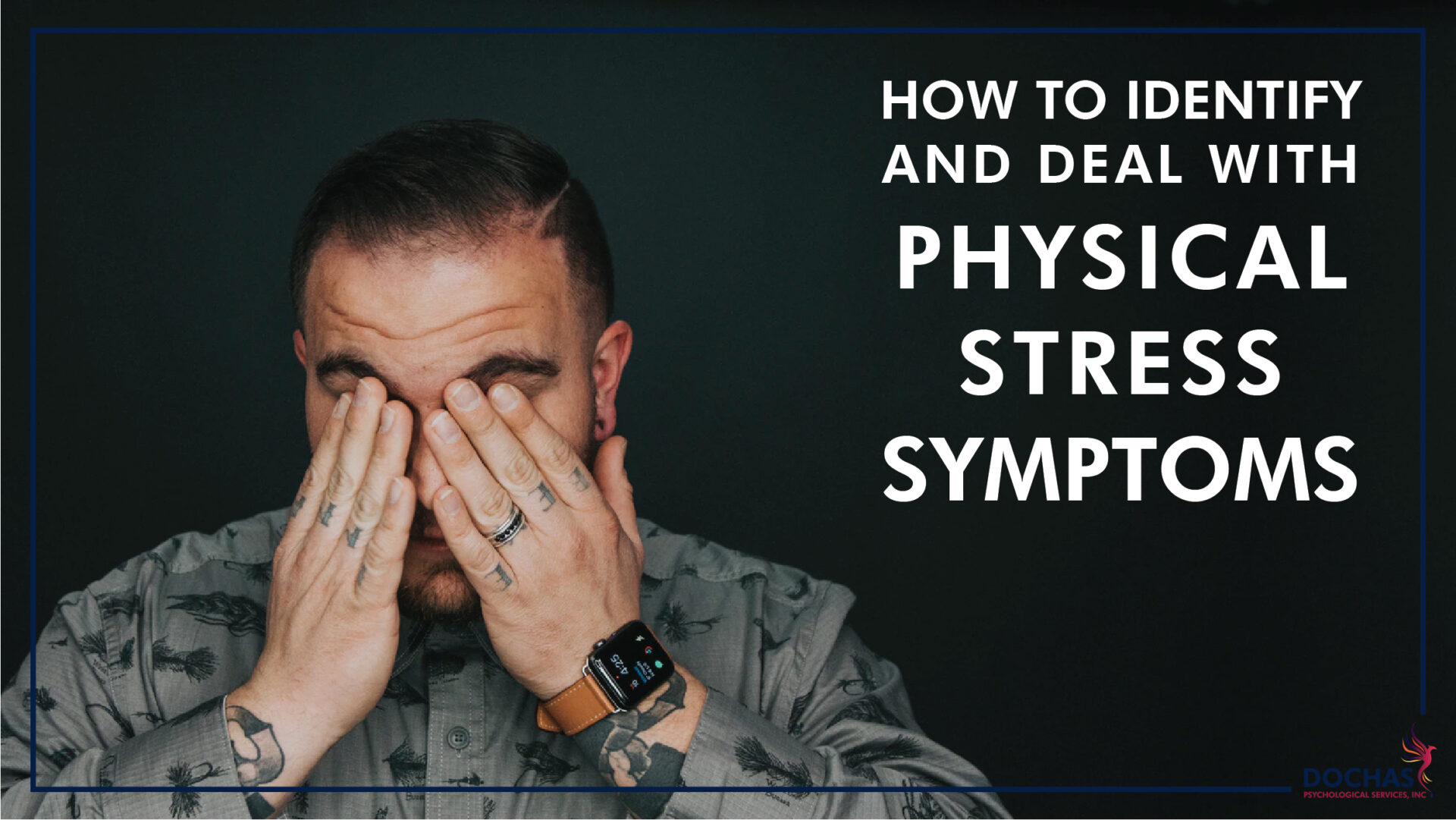If you are suffering from stress in an area of your life, it is likely that you’re experiencing some physical changes in your body. Maybe you’re getting more frequent headaches, perhaps you’ve lost your appetite, or you might notice a decrease in your sex drive. These physical changes could be linked to stress. There is so much information out there when it comes to symptoms of stress, and it can be hard to digest. This video will help explain how you can identify and deal with stress symptoms.
What Are Physical Stress Symptoms?
We experience physical sensations in our bodies everyday, and it can be easy to dismiss stress symptoms. Physical stress symptoms can include headaches, muscle tension or pain, chest tightness, fatigue, nausea, stomach issues, sleep disturbance, change in sex drive, skin issues, chronic pain, sweating, and change in appetite.
What to Do When You Experience Physical Stress Symptoms
Once you have identified your stress symptoms, it is important to know how to tackle them in order to relieve the stress you are experiencing.
Seek Out Therapy
Of course, we recommend therapy as a productive way to identify both which stress symptoms you are experiencing and which strategies are best suited to deal with your symptoms. Everyone experiences stress differently, so we suggest connecting with a therapist who can guide you in the right direction.
Understanding How Your Stress Impacts Your Body
In our practice, we work with stress in terms of identifying the three areas of our brain that are impacted: our mind, our emotional state, and our body. Depending on which stress symptoms you are experiencing, we recommend implementing a strategy that will target the area being affected by the symptom.
For a symptom like racing thoughts you will use a mind strategy like distraction. For a symptom like sadness you will use an emotional strategy like listening to your favourite music. For symptoms like headache or muscle tension you will use a body strategy like taking a bath or practicing yoga.
Additional Strategies to Relieve Stress Symptoms
Learning to focus on your breathing is a useful strategy for dealing with stress symptoms. Take a look at our blog on Grounding Techniques For Anxiety and Box Breathing.
For appetite issues, nausea, and sweating, we recommend creating saliva in the mouth. This helps to shut off the emergency stress response in your body. You can create more saliva by sucking on a mint, chewing gum, running your tongue on the outside of your teeth, or sipping on water.
For skin issues, changes in sex drive, and sleep disturbances, we suggest you track your changes as you experiment with other strategies. We find that these types of stress symptoms can be largely affected by other areas of stress.
If you are experiencing severe chest tightness or pain in your arms, consult your doctor to rule out concerns such as a heart attack.
Get Comfortable With Your Strategy
We suggest that you use this strategy on an ongoing basis. It is a tool that should be placed in your tool box for easy access! Remember that it takes time for your body to adjust to changes, so ensure that you are practicing your strategy for at least 5 minutes and you give it the time it needs.
Disclaimer
Information provided through Dochas Psychological Services blogs or vlogs are meant for educational purposes only. They are NOT medical or mental health advice. You can read more about our disclaimer here.










